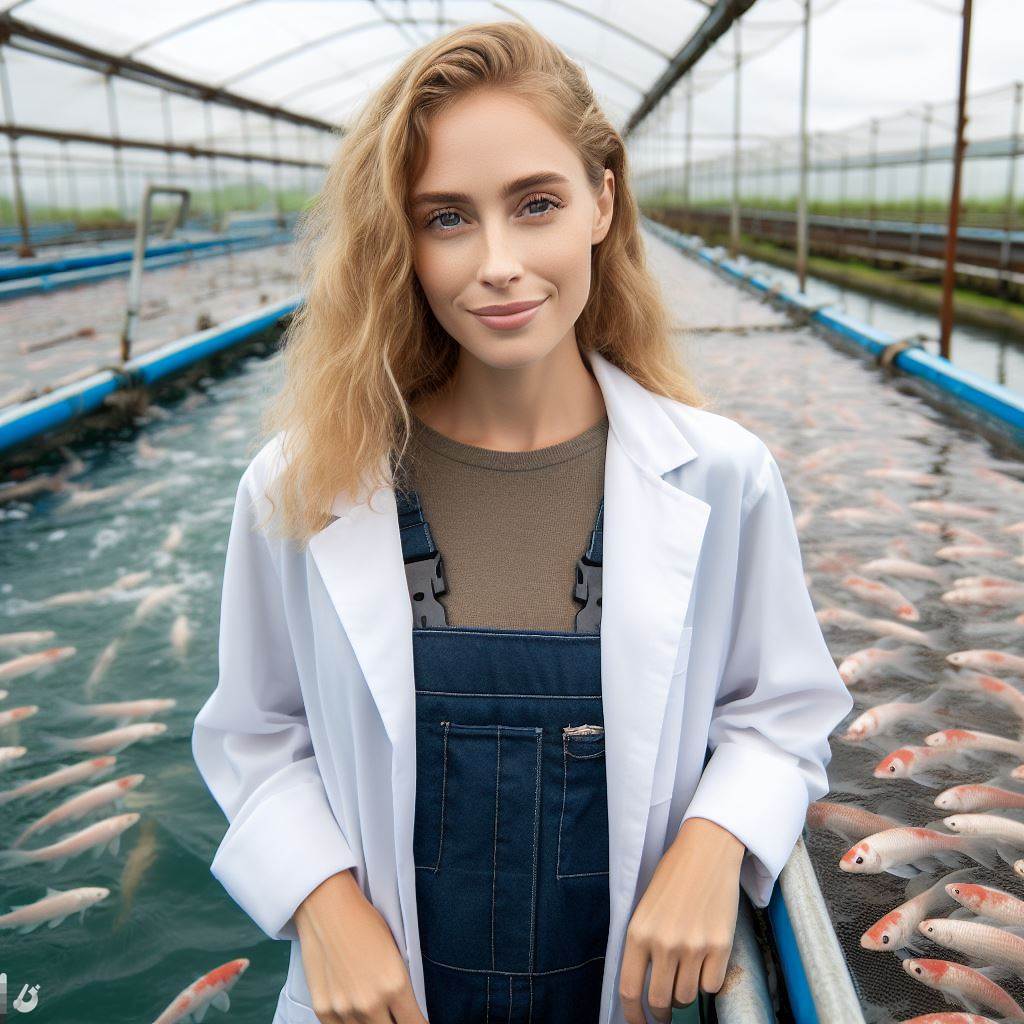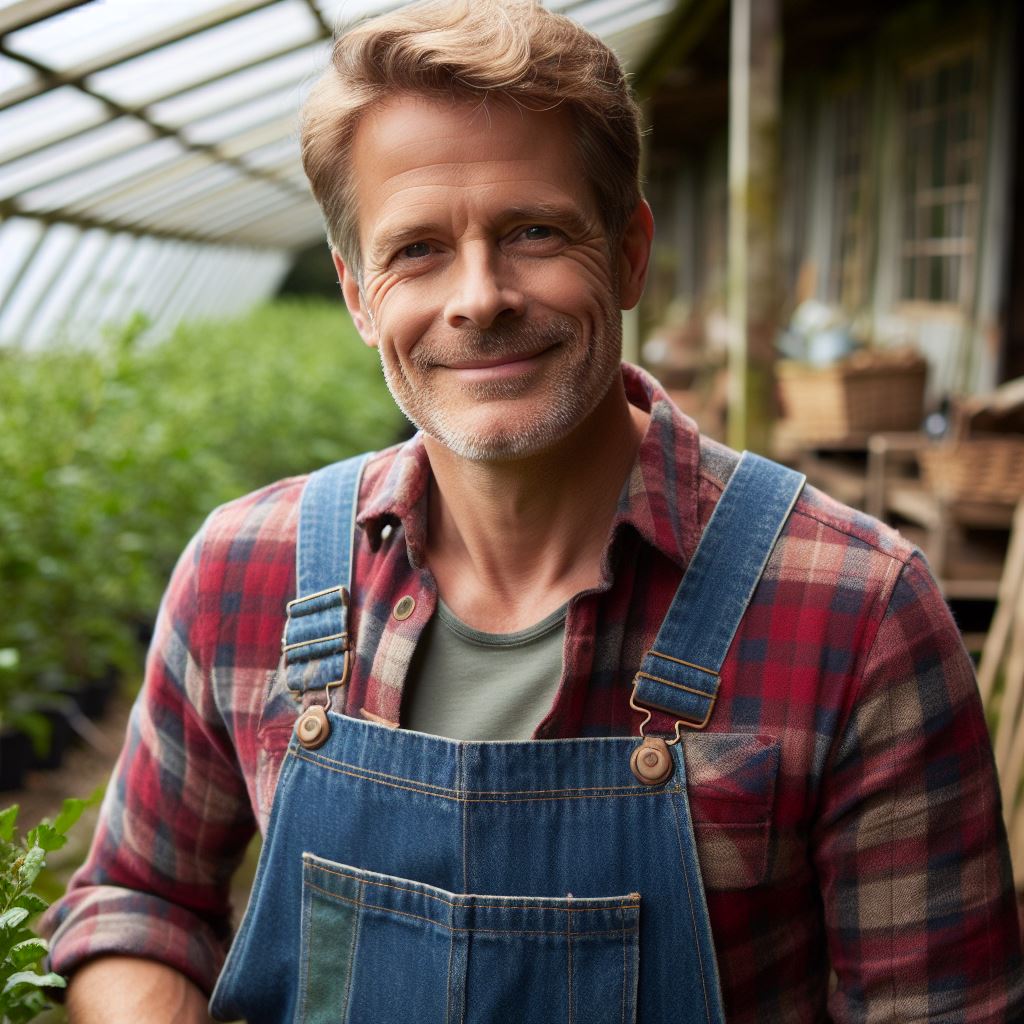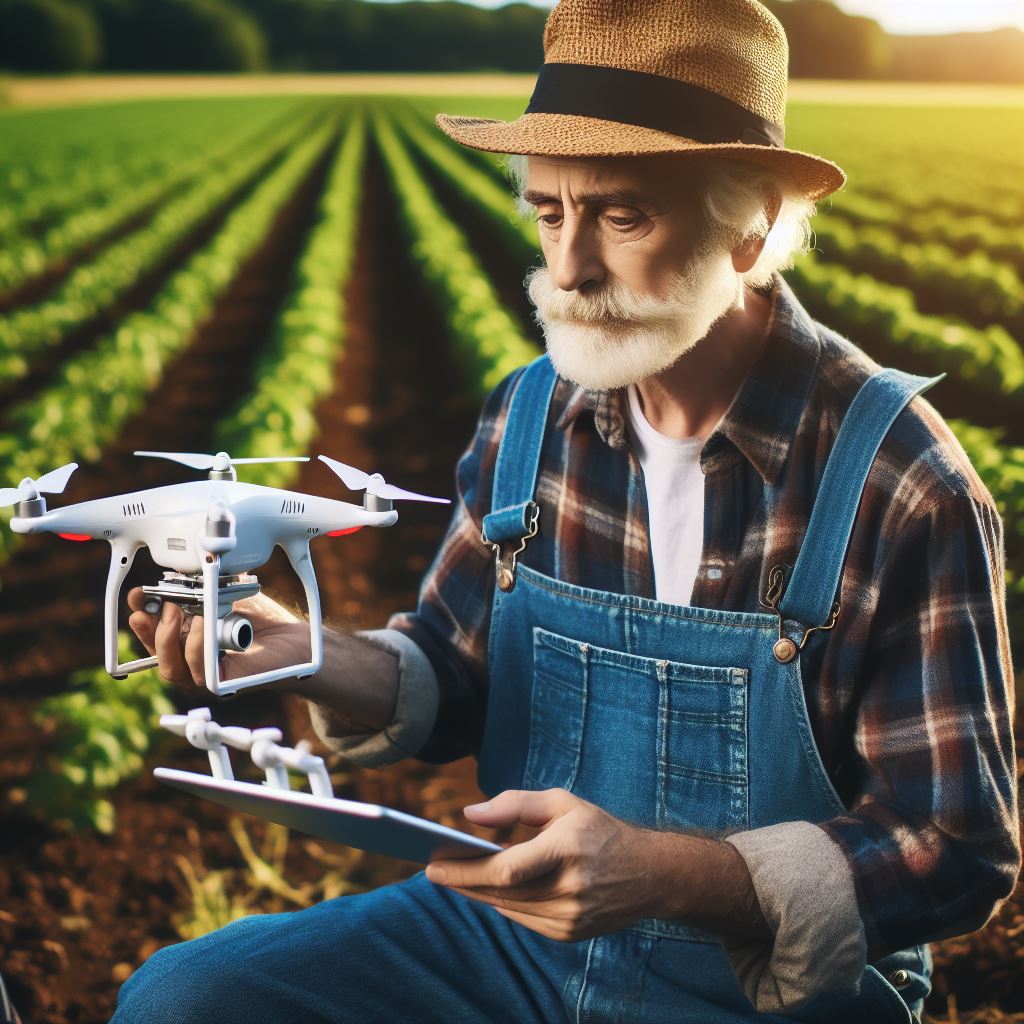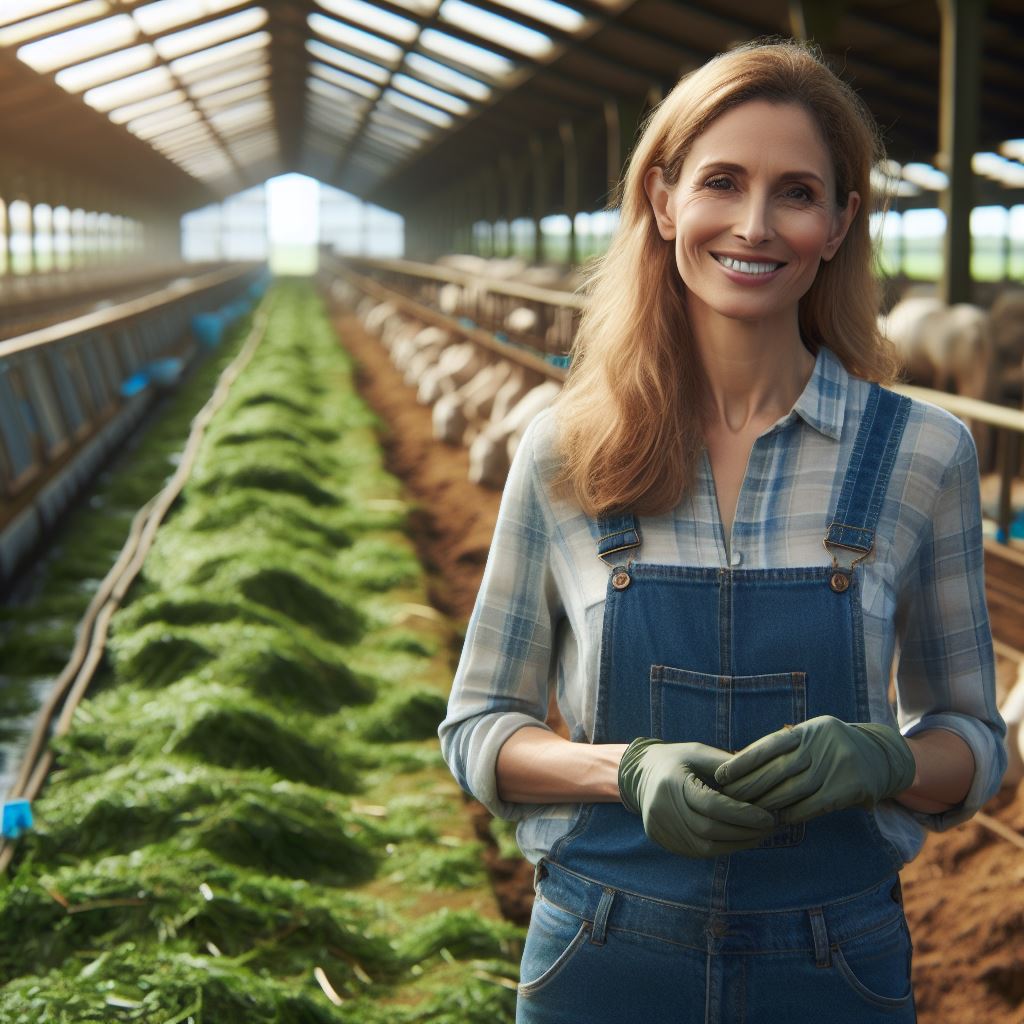Introduction
Aquaculture in the UK thrives, contributing significantly to the seafood industry’s growth.
Breeding techniques play a pivotal role, ensuring sustainable practices and enhancing aquatic species’ productivity.
With a focus on innovation, the UK’s aquaculture sector emphasizes responsible breeding to meet rising demand.
This chapter delves into the vital aspects of breeding techniques, shedding light on their importance and impact on the dynamic landscape of aquaculture in the UK.
Join us as we explore the innovative methods employed to enhance fish and shellfish breeding, addressing challenges and paving the way for a resilient and prosperous future in the realm of aquaculture.
Traditional Breeding Techniques in UK Aquaculture
Description of selective breeding
Selective breeding in UK aquaculture involves choosing and breeding individuals with desirable traits to improve the overall quality of the stocks.
Utilization of brood stock selection and improvement programs
Brood stock selection programs are designed to identify and select the best individuals for breeding, aiming to enhance specific traits such as growth rate, disease resistance, and size.
Artificial fertilization methods
In UK aquaculture, artificial fertilization techniques are commonly used to control the reproduction process. It involves collecting eggs and sperm from selected brood stock for controlled breeding.
Importance of genetic diversity in maintaining healthy stocks
Genetic diversity is crucial in UK aquaculture to prevent the negative effects of inbreeding and maintain healthy and resilient stocks.
It increases the ability to adapt to changing environmental conditions and reduces the risk of diseases.
By implementing traditional breeding techniques, the UK aquaculture industry has achieved significant improvements in stock quality, leading to better economic outcomes.
Benefits of Selective Breeding
Selective breeding offers several benefits in UK aquaculture
- Improved growth: By selectively breeding individuals with higher growth rates, aqua culturists can increase productivity and profitability.
- Disease resistance: Through targeted breeding, stocks with higher resistance to diseases can be developed, reducing the need for antibiotics and improving overall fish health.
- Enhanced size: Breeding larger individuals leads to the production of larger fish, which is highly desirable in the market.
Brood stock selection and improvement programs play a pivotal role in achieving these benefits.
Role of Brood stock Selection and Improvement Programs
In UK aquaculture, brood stock selection and improvement programs form an essential component of traditional breeding techniques.
These programs involve:
- Regular evaluation of brood stock based on specific criteria, such as growth rate, size, and disease resistance.
- Selection of the best-performing individuals for further breeding.
- Continuous monitoring and improvement of brood stock to ensure consistent progress.
By implementing these programs, aquaculturists can gradually enhance the genetic traits of their stocks, leading to improved overall performance.
Artificial Fertilization Methods
Artificial fertilization methods have become a standard practice in UK aquaculture for controlled breeding.
These methods involve:
- Collecting eggs and sperm from selected brood stock in a controlled environment.
- Ensuring proper fertilization of the collected eggs.
- Managing the incubation process to promote successful hatching.
Artificial fertilization allows aqua culturists to control the breeding process, ensuring optimal genetic combinations and maximizing the desired traits in the offspring.
The Significance of Genetic Diversity
Genetic diversity is vital for the long-term sustainability and health of UK aquaculture stocks.
Personalized UK Career Consulting
Receive tailored career guidance designed just for you. Get actionable steps and expert support to boost your career in 1-3 days. Take control of your career now.
Get StartedKey reasons for maintaining genetic diversity include:
- Reduced vulnerability: A diverse gene pool decreases the risk of diseases impacting the entire stock, as some individuals may possess natural resistance.
- Environmental adaptability: Genetic diversity enables stocks to adapt to changes in their environment, improving overall survival and resilience.
Therefore, maintaining genetic diversity through careful breeding practices ensures the longevity and stability of UK aquaculture stocks.
Traditional breeding techniques, vital in UK aquaculture, involve selective breeding, brood stock selection, improvement programs, artificial fertilization, and genetic diversity maintenance.
These techniques contribute to the production of high-quality stocks, increased profitability, and environmental sustainability.
Read: Sustainable Practices in UK Aquaculture Tech
Modern Breeding Techniques in UK Aquaculture
Aquaculture, the breeding and rearing of fish and aquatic plants in controlled environments, has seen significant advancements in recent years.
Modern breeding techniques, particularly genetic engineering, have played a crucial role in enhancing production and improving the quality of aquaculture in the UK.
Introduction to genetic engineering in aquaculture
Genetic engineering, also known as genetic modification, involves manipulating an organism’s genetic material to introduce desired traits or enhance existing ones.
In the context of aquaculture, this technique has revolutionized fish breeding.
By altering the genes of fish, scientists can selectively improve desirable traits such as growth rate, disease resistance, and nutritional value.
This allows for the production of fish species that are more robust, economically valuable, and sustainable.
Overview of transgenic fish and their benefits
Transgenic fish, which have genes from other species inserted into their genome, are one of the notable achievements of modern genetic engineering in aquaculture.
These modified fish possess unique and advantageous characteristics.
For instance, transgenic fish can be engineered to grow faster, reaching market size in a shorter timeframe.
This trait not only reduces production costs but also increases overall productivity, meeting the rising demand for fish in the UK.
In addition to rapid growth, transgenic fish can exhibit improved disease resistance.
By introducing genes that enhance the immune system, these fish are less susceptible to common infections, reducing the need for antibiotics and promoting healthier populations.
Furthermore, genetic engineering has the potential to enhance the nutritional quality of fish.
Scientists can introduce genes responsible for producing beneficial substances like omega-3 fatty acids, resulting in fish with higher nutritional value for consumers.
Challenges and controversies surrounding genetically modified organisms (GMOs)
Despite the numerous benefits genetic engineering offers, there are several challenges and controversies associated with genetically modified organisms (GMOs) in aquaculture.
Your Dream Job Starts with a Perfect CV
Get a tailored CV and cover letter that captures your unique strengths and stands out in your industry. Let us help you make an unforgettable first impression.
Get StartedOne of the main concerns is the potential ecological impact of transgenic fish if they were to escape into the wild.
Critics argue that these modified fish could outcompete native species or disrupt natural ecosystems, leading to unforeseen consequences.
Another controversy revolves around consumer acceptance.
Some people are skeptical about consuming GMOs due to concerns about long-term health effects or ethical considerations.
This poses challenges for the widespread adoption and commercialization of transgenic fish in the UK.
Comprehensive risk assessments, stringent regulations, and transparent communication are essential to address these concerns and ensure the responsible use of genetic engineering in aquaculture.
Potential future of genetic engineering in UK aquaculture
Looking ahead, the potential of genetic engineering in UK aquaculture seems promising. Continued research and development could unlock even more benefits and address current challenges.
Future advancements may focus on further enhancing traits like tolerance to extreme environmental conditions and improving the efficiency of feed utilization.
This would contribute to the sustainability and resilience of aquaculture systems.
Moreover, exploring non-food traits such as bioluminescence in fish could have applications in biomedical research and could open up new opportunities for innovation and commercialization.
However, it is crucial to proceed with caution, taking into account the ethical, environmental, and societal implications of genetic engineering.
Collaboration between scientists, regulators, and stakeholders is vital in shaping the future of UK aquaculture.
Modern breeding techniques, particularly genetic engineering, have revolutionized UK aquaculture.
Transgenic fish with enhanced traits offer numerous benefits, but challenges and controversies must be addressed for their responsible use in a sustainable and ethical manner.
Read: UK Aquaculture Technician: Career FAQs
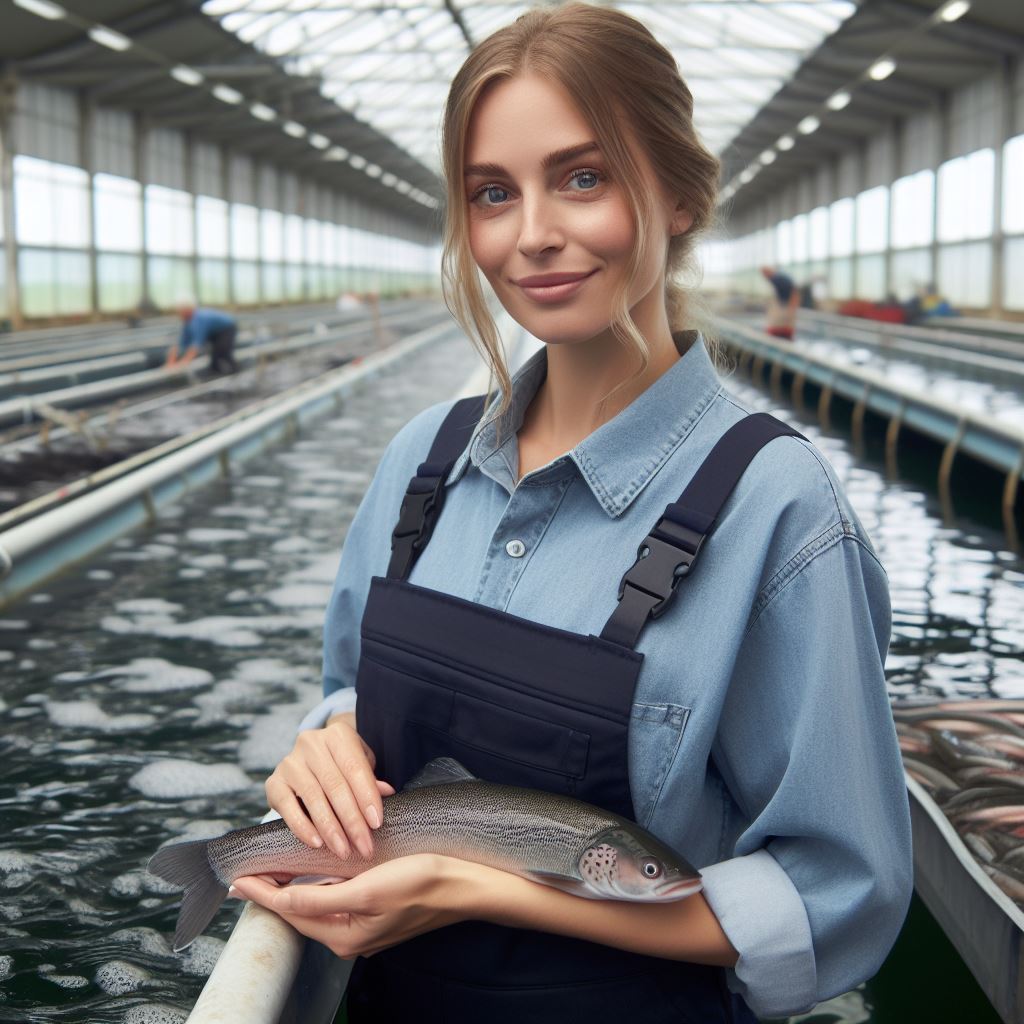
Explore Further: Navigating UK Agri-Policies: A Manager’s Guide
Sustainable Breeding Practices in UK Aquaculture
Importance of sustainable practices for long-term viability
- Sustainable breeding practices are crucial for ensuring the long-term viability of UK aquaculture.
- These practices help maintain healthy fish populations and prevent overfishing.
- By focusing on sustainability, aquaculture farms can ensure the availability of fish for future generations.
- It also helps preserve the biodiversity of aquatic ecosystems and protects endangered species.
Environmental impact of breeding techniques and mitigation strategies
- Some breeding techniques used in aquaculture can have negative environmental impacts.
- These include the use of antibiotics, chemicals, and hormones.
- To mitigate these impacts, farms can employ alternative techniques such as selective breeding and proper nutrition.
- Reducing water pollution and minimizing habitat destruction are also crucial for sustainable breeding practices.
Implementation of sustainable breeding certifications and standards
- It is essential for the aquaculture industry to have certifications and standards for sustainable breeding practices.
- These certifications ensure that farms adhere to specific criteria and guidelines for sustainability.
- They provide transparency to consumers and can help build trust in the industry.
- Certifications also encourage continuous improvement and innovation in breeding techniques.
Success stories of UK aquaculture farms
- Several UK aquaculture farms have successfully implemented sustainable breeding practices.
- One example is a farm that replaced antibiotics with natural remedies to treat fish diseases.
- Another farm implemented strict water quality monitoring to reduce environmental impacts.
- These success stories highlight the feasibility and benefits of sustainable breeding practices.
Sustainable breeding practices are of utmost importance in UK aquaculture.
By adopting these practices, the industry can ensure long-term viability, minimize environmental impacts, and meet consumer demands for sustainability.
Implementation of certifications and standards further strengthens the industry’s commitment to sustainability.
The success stories of farms implementing sustainable practices serve as inspirations for others to follow suit.
Optimize Your LinkedIn for Success
Boost your LinkedIn profile with a professional bio, keyword-rich headline, and strategic recommendations that attract recruiters. Stand out from the crowd and get noticed.
Optimize NowOverall, the future of UK aquaculture lies in sustainable breeding techniques that balance economic, social, and environmental factors.
Read: Aquaculture Law: UK Regulations Explained
Delve into the Subject: From Sea to Plate: A UK Fisherman’s Economic Impact
Future Trends in UK Aquaculture Breeding Techniques
Introduction to emerging technologies like marker-assisted breeding
- Marker-assisted breeding is an emerging technology in UK aquaculture breeding techniques.
- It involves the use of molecular markers to select desirable traits in fish breeding.
- Genetic markers are linked to specific traits, helping breeders make informed breeding decisions.
- This technology accelerates the breeding process by identifying fish with desired genetic traits.
- Marker-assisted breeding enhances breeding efficiency, reduces costs, and improves overall productivity.
Exploration of novel techniques
- Genome editing is an innovative technique that holds promise for UK aquaculture breeding.
- It involves modifying the genetic material of an organism to achieve desired traits.
- Tools like CRISPR-Cas9 can edit or delete specific genes, allowing precise genetic modifications.
- Genome editing enables the development of disease-resistant, fast-growing, and more productive fish.
- This technique has the potential to revolutionize aquaculture by improving sustainability and profitability.
Potential benefits and ethical concerns associated with future breeding methods
- Future breeding methods offer numerous potential benefits to the UK aquaculture industry.
- Selectively breeding for desired traits can lead to improved growth rates and disease resistance.
- Enhanced genetic diversity can increase the industry’s resilience to environmental changes.
- However, ethical concerns arise regarding the manipulation of animal genomes and potential unintended consequences.
- Balancing the benefits and ethical considerations is crucial for responsible and sustainable breeding practices.
Role of research and technology advancements in shaping the future of UK aquaculture breeding
- Research and technological advancements play a vital role in shaping the future of UK aquaculture breeding.
- Ongoing research allows for the discovery and development of new breeding techniques.
- Advanced technologies enable more efficient breeding methods and better genetic selection.
- Collaboration between industry and academia drives innovation and fosters continuous improvement.
- The future of UK aquaculture breeding relies on continued investment in research and embracing technological advancements.
The future of UK aquaculture breeding techniques is promising with the emergence of marker-assisted breeding and genome editing.
These innovative technologies offer benefits such as improved productivity, disease resistance, and environmental resilience.
However, ethical considerations must be addressed to ensure responsible breeding practices.
Ongoing research and technology advancements will play a crucial role in shaping the future of UK aquaculture breeding, driving innovation and sustainable growth.
Read: Aquatic Health Management by UK Experts
You Might Also Like: Fishermen’s Health: Staying Safe at Sea in the UK
Conclusion
Recap of key points discussed in the blog post
- The blog post explored various breeding techniques used in UK aquaculture.
- These techniques include selective breeding, artificial insemination, and genetic manipulation.
- Each technique plays a crucial role in improving the overall productivity and quality of farmed fish.
- UK aquaculture industry has successfully implemented these techniques to meet the growing demand for seafood.
Importance of breeding techniques for the growth of UK aquaculture
The use of advanced breeding techniques is essential for the sustainable growth and development of the UK aquaculture industry.
These techniques help in enhancing the genetic traits of farmed fish, resulting in improved resistance to diseases, faster growth rates, and better quality products.
By adopting these techniques, the UK can ensure a consistent supply of high-quality seafood, reduce pressure on wild fish populations, and contribute to the country’s food security.
Encouragement for readers
Understanding the breeding techniques used in aquaculture is crucial for anyone interested in sustainable seafood production.
By educating ourselves and supporting responsible aquaculture practices, we can contribute to the conservation of marine ecosystems, protect biodiversity, and promote a healthier food system.
It is our collective responsibility to champion sustainable aquaculture and ensure a thriving future for both the industry and the environment.
[E-Book for Sale]
500 Cutting-Edge Tech Startup Ideas for 2024 & 2025: Innovate, Create, Dominate
$19.99 • 500 Tech Startup Ideas • 62 pages
You will get inspired with 500 innovative tech startup ideas for 2024 and 2025, complete with concise descriptions to help you kickstart your entrepreneurial journey in AI, Blockchain, IoT, Fintech, and AR/VR.

